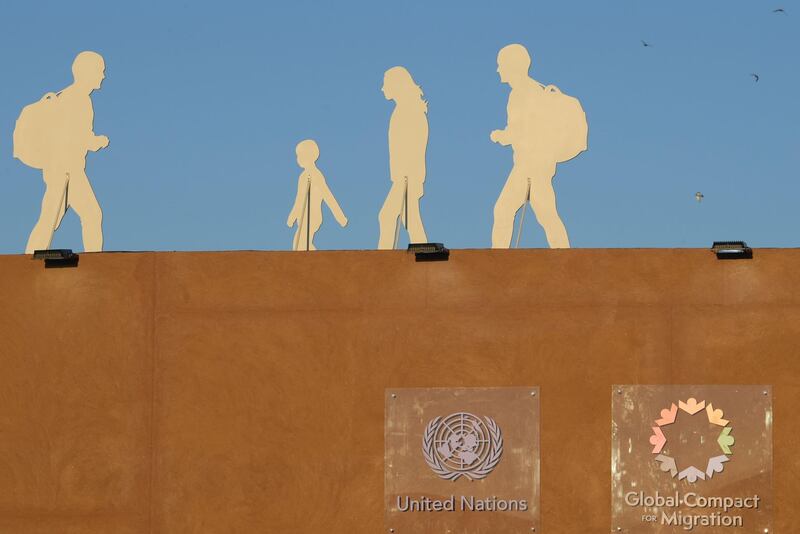In ancient Greece, the word “xenos” denoted a stranger who should be welcomed into the home and treated with kindness and hospitality. It wasn’t until the 19th century, thousands of years later, that it became synonymous with xenophobia, or fear of strangers – a term that has, tragically, come to symbolise our modern-day treatment of those who look or behave differently. It is possible to tell a great deal about a country from the way it treats foreigners – whether it greets them with compassion and understanding or with hostility. The storm engulfing the United Nations Global Compact for Safe, Orderly and Regular Migration, which was formally adopted in Marrakech today, demonstrates how talk alone of our treatment of migrants can still bring tensions to boiling point.
The non-binding document should have been fairly innocuous, enshrining what should be considered basic principles of decency and fair treatment. Its 23 objectives lay out the importance of minimising the adverse factors that compel people to leave their homeland in the first place and call for greater international co-ordination to prevent people-smuggling and to manage borders. Yet discussions over the compact, which took 18 months to finalise, have become so heated, they have caused a government to crumble in Belgium, sparked the resignation of Slovakia’s foreign minister and prompted US president Donald Trump to pull out of negotiations last year. Ten countries have so far failed to ratify the agreement, including the US, Australia and Israel, all countries that exist today because of the hard work of migrant populations. Behind their protestations lie a wilful misreading of the agreement. It does not violate the sovereignty of states and refers not to refugees but the 258 million migrants who, in the overwhelming majority of cases, go on to work and contribute to the societies in which they settle.
Right-wing populists have been successful in stoking fears of migration with hate-filled rhetoric, often giving a distorted and false view of migrants being a drain on resources. They show disdain for the many benefits of global migration, which fills skills gaps and sustains economic growth. Hard-working migrants inject vitality and innovation into labour markets and support ageing populations. UN special representative for migration, Louise Arbour, sought to mollify critics by playing down the agreement’s obligations. The document, she insisted, “creates no right to migrate” and “places no imposition on states”. The compact will lack the teeth to implement its suggestions but stands as a powerful prism through which to view the world’s response to migration. It is not too late to seize power from the naysayers by reminding the world of a fundamental truth: that migration has built the world we know today.





